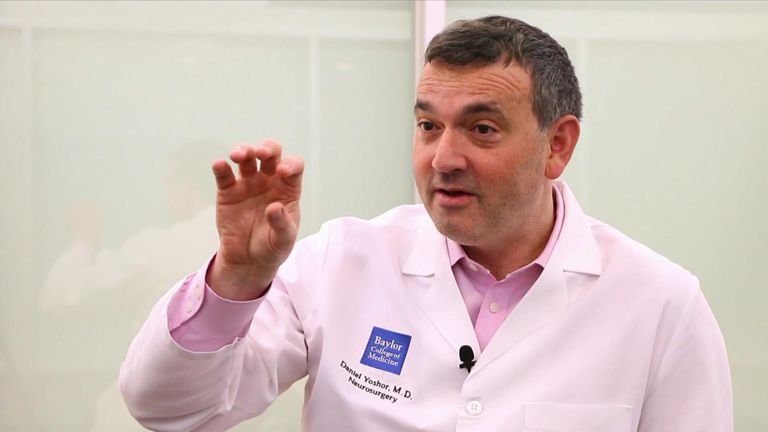Six blind people have had their sight partially restored using an implant which transmits video images to the brain.
Paul Phillip, who has been blind for almost a decade, has said he can now tell where the grass and path meet while on evening walks with his wife.
He is also able to tell where his white sofa is located.
Mr Phillip said: "It really is amazing to be able to see something even if it is just points of light for now."
Benjamin Spencer, who lost his sight as a child, says he can now tell when he approaches a window or a doorway.
Advertisement
Vision has been made possible with the trial participants' eyes bypassed, as a video camera attached to glasses sends footage to electrodes implanted in the visual cortex of the brain.
The method bypasses broken optical nerves that don't work.
More from Science & Tech
The technology, called Orion, has not been proven to work on those born unable to see.
If a person is born blind, the parts of the brain that support sight are not fully developed, and visual information cannot be effectively transmitted to the brain.
The US team behind the study asked participants, each of whom has been completely blind for years, to look at a blacked-out computer screen and identify a white square appearing randomly at different locations on the monitor.
Participants were able to find the square the majority of the time.


Sky News
[contfnewc] [contfnewc]






